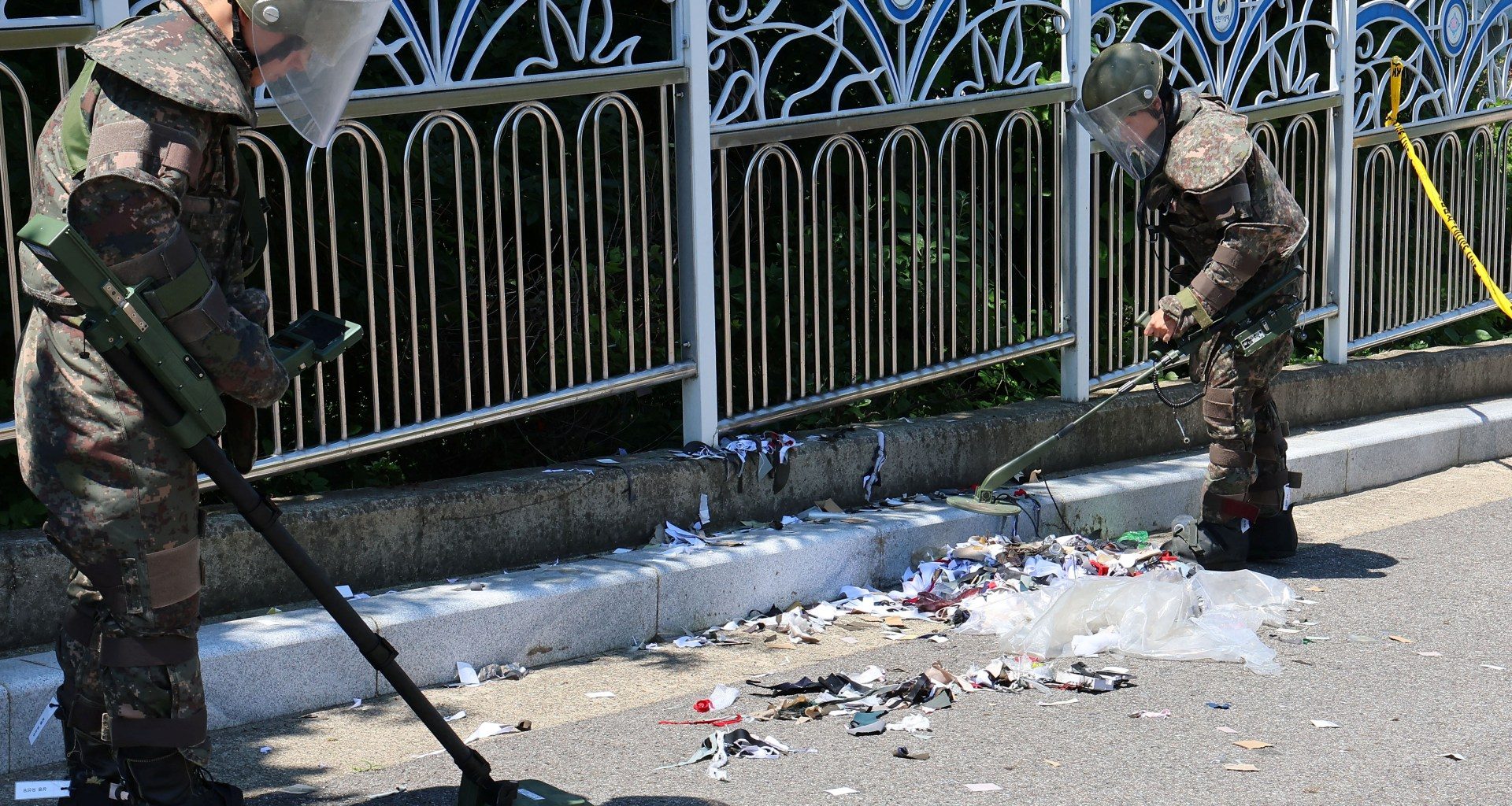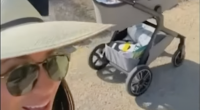
Tensions are once again rising on the Korean peninsula after North Korea launched hundreds of balloons carrying rubbish and manure across towns and cities in South Korea, including onto the runway of Seoul’s main airport.
The South Korean government responded on Tuesday by suspending a 2018 inter-Korean military deal aimed at easing front-line animosities.
The move will allow Seoul to resume large-scale military training near the border and restart propaganda broadcasts, including K-pop songs and outside news from loudspeakers stationed at the frontier.
Why did North Korea send balloons filled with rubbish into South Korea?
The North Korean campaign began last week on Tuesday, with Pyongyang flying some 260 balloons carrying cigarette butts, scraps of cloth, waste paper and manure into South Korea. The balloons – carried by the wind – fell across the country, including as far south as the county of Geochang, some 218 kilometres (135 miles) south of Seoul, according to the Yonhap news agency.
The campaign was also accompanied by North Korean attempts to jam GPS systems in South Korea.
The South Korean military called the acts “base” and “dangerous” and deployed explosive ordnance disposal units and chemical and biological warfare response teams to inspect and collect the rubbish bags. It also issued alerts warning residents to keep away and report any sightings to authorities, but later said the material tied to the balloons did not contain any dangerous substances.
On Wednesday, North Korea said the balloons were launched in retaliation for an ongoing propaganda campaign by North Korean defectors and activists in South Korea, who regularly send inflatables containing anti-Pyongyang leaflets, food, medicine, money and USB sticks loaded with K-pop music videos and dramas across the border.
Kim Yo Jong, the sister of North Korean leader Kim Jong Un and a powerful ruling party official, issued a statement via the Korean Central News Agency, condemning Seoul as “shameful, brazen” for criticising the balloons while defending its citizens’ own freedom of expression. North Korea’s balloons were “gifts of sincerity” for South Koreans who “cry for freedom of expression”, she claimed.
North Korea is extremely sensitive to the leaflets that South Korean activists float across the border, because they carry information about the outside world and criticism of the three-generation Kim dynasty’s rule since the founding of North Korea by Kim Il Sung in 1948.
In 2020, the Korean People’s Army was dispatched by Pyongyang to blow up an empty, South Korean-built liaison office on its territory in Kaesong in protest at South Korean civilian leafletting campaigns. The Inter Korean Liaison Office had been closed and evacuated in January that year, during the COVID-19 pandemic.
Seoul tried to address North Korea’s concerns that year, approving a law that made the sending of anti-Pyongyang propaganda leaflets a crime, punishable by up to three years in prison or a fine of 30 million won ($21,765). But in 2023, South Korea’s Constitutional Court struck down the legislation calling it an excessive restriction of free speech.
Is North Korea’s balloon campaign continuing?
On Sunday, days after the first North Korean rubbish balloons arrived in South Korea, Seoul’s military said it had collected a further 700 rubbish bags sent from North Korea.
The new launch prompted South Korean President Yoon Suk-yeol to convene a meeting of his National Security Council, which promised “unendurable” measures in response. The council also condemned the balloons, and simultaneous GPS jamming, as an “irrational act of provocation”.
Hours later, on Sunday night, Kim Kang Il, a North Korean vice defence minister, said Pyongyang would temporarily suspend its balloon activities. He said North Korea had sent 3,500 balloons carrying 15 tonnes of wastepaper, and claimed the campaign had left the South Koreans with “enough experience” of the unpleasantness and effort of having to remove scattered rubbish.
If South Korean activists were to float anti-Pyongyang propaganda leaflets across the border again, however, he warned that North Korea would “correspond to it by intensively scattering wastepaper and rubbish a hundred times the amount of scattered leaflets and the number of cases”.
The suspension appeared to have come too late, however.
On Tuesday this week, the South Korean government discontinued the 2018 inter-Korean military agreement, saying the large-scale floating of balloons had “seriously threatened the safety of our people and caused property damage”.
Cho Chang-rae, South Korea’s deputy defence minister for policy, said the “responsibility for this situation lies solely with North Korea”. He added: “If North Korea launches additional provocations, our military, in conjunction with the solid South Korea-United States defence posture, will punish North Korea swiftly, strongly and to the end.”
What does the suspension of the 2018 deal mean?
The 2018 agreement was reached during a brief period of reconciliation between Kim and then-liberal South Korean President Moon Jae-in.
Under the pact, both countries agreed to “completely cease all hostile acts against each other”, including propaganda broadcasts and military drills near their heavily fortified border.
The agreement has already been in danger of collapsing.
Tensions spiked in November last year after South Korea responded to North Korea’s launch of a spy satellite by announcing it would partially suspend the deal and resume aerial surveillance along their militarised border. North Korea then declared it was no longer bound by the deal, and deployed troops and weapons at guard posts that it had previously dismantled.
Pyongyang has yet to respond to Seoul’s decision to fully suspend the 2018 accord.
But South Korea’s resumption of firing exercises or propaganda loudspeaker broadcasts will likely prompt North Korea to take similar or stronger steps along the rivals’ tense border.
Read More: World News | Entertainment News | Celeb News
Aljazera








